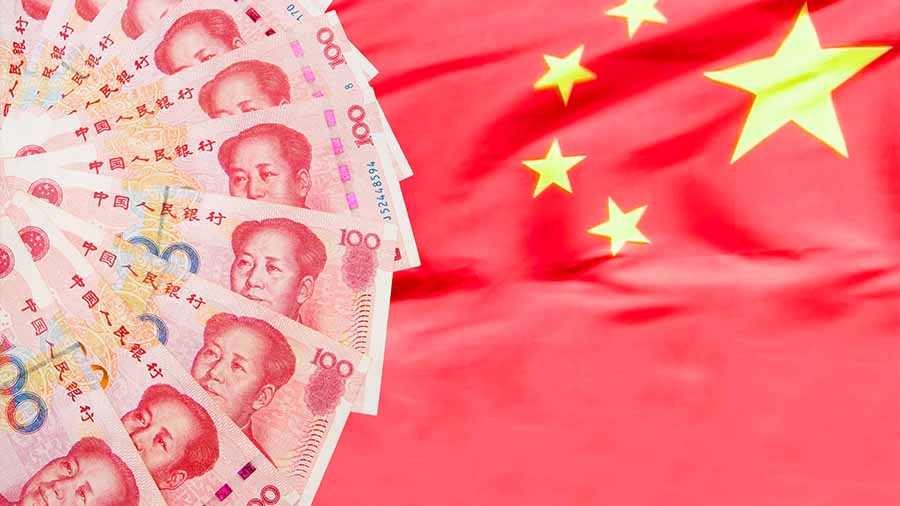For business owners venturing into China, understanding the intricate web of governmental agencies is crucial. Recognizing the role of these bodies can significantly impact your business operations in China. Unlike Western capitalist economies, the Chinese government plays a more hands-on role in business, making it imperative to grasp this unique structure for success in the market.
Here are some of the key government agencies in China that businesses should be aware of:
The Chinese Central Government’s Official Web Portal
The website provides information about various government agencies and departments, as well as services for businesses such as investment project database, trademark registration, and enterprise registration.
National Development and Reform Commission (NDRC)
NDRC implements the CPC Central Committee’s policies on development and reform, ensuring centralized leadership during its execution. Notable responsibilities points include:
- planning and strategy;
- economic oversight;
- economic reform;
- international relations;
- investment management;
- regional development;
- industry and consumption;
- innovation and technology; and
- sustainability and defense.
The NDRC’s mission has been streamlined to manage macro matters and major national issues, emphasizing strategic planning, major reforms, and coordination. They work collaboratively with multiple departments, such as the Ministry of Commerce, the National Health Commission, the National Food and Strategic Reserves Administration, and the National Energy Administration, to execute their broad mandate efficiently.
Ministry of Commerce (MofCom)
As one of the most powerful government agencies regulating access to the Chinese market, here are some of MofCom’s core functions:
- Anti-monopoly oversight duties from MOFCOM and the Office of the State Council Anti-monopoly Committee are now under the State Administration for Market Regulation.
- MOFCOM's foreign assistance roles are now assigned to the China International Development Cooperation Agency.
- The National Food and Strategic Reserves Administration now handles central sugar reserve management by MOFCOM.
- MOFCOM's regulatory duties for pawn shops and certain finance companies are transferred to the China Banking and Insurance Regulatory Commission.
State-owned Assets Supervision and Administration Commission (SASAC)
It is an ad hoc ministerial-level entity that reports directly to the State Council. SASAC's Party Committee manages state-owned firms in accordance with the Central Committee of the Chinese Communist Party's mandate. Their responsibilities include:
- Coordinating the resolution of property rights problems.
- Determining and recording property rights.
- Creating SOE-related legislation.
- Approval of any mergers or transactions of SOE stocks or assets.
- Appointing top SOE executives.
- Overseeing and administering asset appraisal, asset and liability verification, asset statistics, and overall asset assessment for State-Owned assets.
People’s Bank of China (PBOC)
As a central bank, the PBC will play an even more significant role in China's macroeconomic management. The modified People's Republic of China Law on the People's Bank of China, enacted on December 27, 2003, by the 6th meeting of the Standing Committee of the 10th National People's Congress, states that the PBC performs the following key functions:
- Creating and enforcing applicable laws, rules, and regulations relating to carrying out its tasks.
- Creating and enforcing monetary policy in line with the law.
- Issuing the Renminbi and managing its circulation.
- Financial market regulation comprises the inter-bank loan market, the inter-bank bond market, the foreign exchange market, and the gold market.
- Protecting financial stability by preventing and minimizing systemic financial risks.
- Keeping the Renminbi exchange rate adaptable and in equilibrium.
- Managing the state's foreign exchange and gold reserves.
- Acting as fiscal agent for the State Treasury.
- Developing payment and settlement regulations in coordination with relevant departments and ensuring the payment and settlement systems operate normally.
- Providing direction to anti-money laundering activity in the financial sector and monitoring suspected fund movement connected to money laundering.
- Responsible for the development of a financial statistics system and the consolidation of financial information, as well as the conduct of economic analysis and forecasting.
- Managing the credit reporting sector in China and fostering the development of a credit information system.
- Participating in international financial activity as a central bank.
- Conducting financial business operations in accordance with applicable rules.
- Carrying out such duties as assigned by the State Council.
China Securities Regulatory Commission (CSRC)
The China Securities Regulatory Commission (CSRC) oversees the securities market through the following responsibilities:
- Develop policies, plans, laws, and regulations for the securities and futures markets.
- Oversee domestic securities and futures regulatory bodies, ensuring unified supervision of the market and its managerial officials.
- Supervise the issuance, listing, and trading of various securities, including stocks, bonds, and convertible bonds.
- Monitor the behaviors of listed companies and their shareholders, ensuring compliance with relevant laws.
- Oversee domestic futures trading and the international futures activities of domestic institutions.
- Regulate securities and futures exchanges, their senior management, and associated associations.
- Supervise a broad range of financial institutions, their senior management, and the personnel involved in securities and futures operations.
- Regulate domestic enterprises issuing and listing shares overseas, as well as international establishments in China's securities and futures sectors.
- Manage and supervise the communication of securities and futures information, including statistical data.
- Collaborate with authorities to approve qualifications for accounting and law firms involved in the securities and futures businesses and act against violations of securities and futures regulations.
State Administration for Market Regulation (SAMR)
The SAMR was created to standardize and maintain the market order, creating a market environment of honesty, trustworthiness, and fair competition. It plays a crucial role in China’s market regulation.
The SAMR undertakes a broad range of market supervision responsibilities, including:
- Market entity registration;
- Direct selling;
- Anti-monopoly;
- Intellectual property;
- Industrial products supervision;
- Food safety;
- Special equipment safety supervision; and,
- Standards, testing, certification, and accreditation.
General Administration of Customs (GAC)
The General Administration of Customs (GAC) regulates and manages all entries and departures from the PRC mainland's customs domain. GAC's primary responsibilities include:
- Customs control;
- Revenue collection;
- Smuggling prevention; and,
- The preparation of foreign trade statistics.
It also oversees duty collection, customs control, the supervision and management of bonded activities, the compilation of international trade data, audit-based control, intellectual property rights protection, smuggling prevention, and port management.
China Banking and Insurance Regulatory Commission (CBIRC)
The organization oversees China’s banking and insurance sectors. CBIRC is an independent, ministry-level body reporting to the State Council. While PBoC manages electronic payments and credit card clearings, CBIRC approves banks’ issuances of debit and bank-branded credit cards.
Their responsibilities include:
- Monitoring liquidity, capital adequacy, reserve requirements, and non-performing loans (NPLS) in domestic banks;
- Regulating the insurance market;
- Supervising insurance agency market;
- Setting risk controls for the insurance industry; and,
- Supervising state-owned banks, rural credit cooperatives, trusts, and other financial entities.
State Taxation Administration (STA)
The STA is a ministry-level agency that reports directly to the State Council. The STA is in charge of administering China's tax system, which includes:
- Drafting tax laws and regulations;
- Creating detailed rules for tax implementation;
- Offering guidance on tax policy formulation;
- Collaborating with the MOF on reporting and instruction;
- Interpreting tax laws and policies during enforcement; and,
- Reporting to the MOF for record-keeping post-implementation.
Conclusion
Unlike many Western economies, China's government significantly influences its business landscape. Talk to our experts to navigate the myriad of government organizations, which is essential for businesses looking to succeed in the market.









